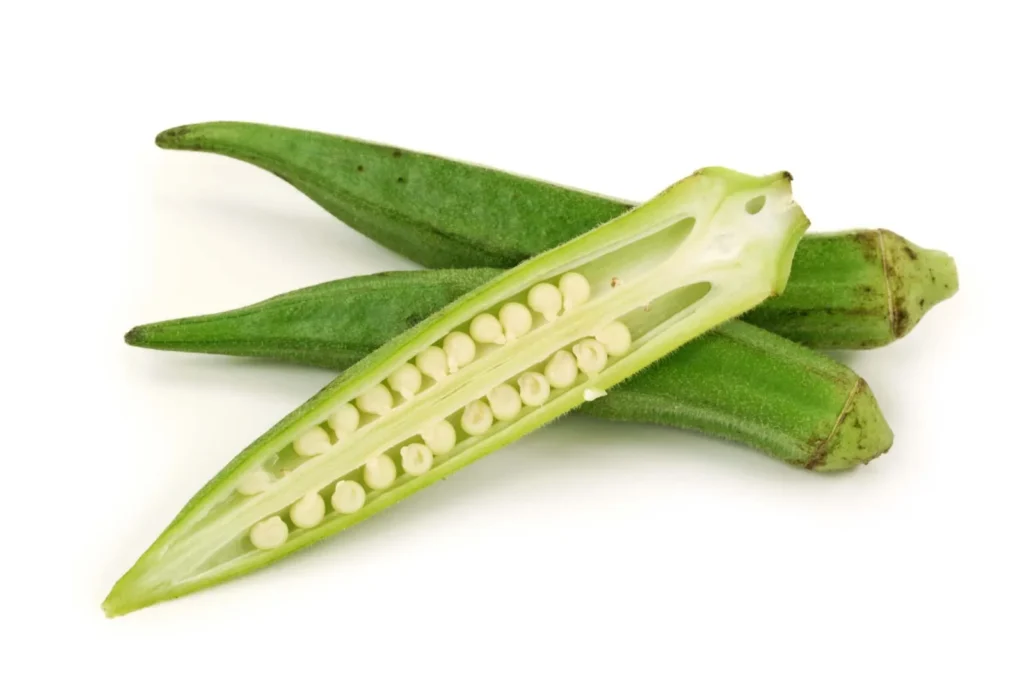
Okra is the seed pod of the Abelmoschus esculentus plant. It’s filled with tiny white seeds and is sometimes called lady’s fingers due to its long, slender, tubelike shape. Native to Ethiopia, okra was brought to North America by enslaved people and settlers when they arrived centuries ago. It grows best in hot and humid climates. Leading growers include India, Nigeria, Sudan, Pakistan, Ghana, Egypt, Benin, Saudi Arabia, Mexico, and Cameroon—it’s also grown in Florida and other southeastern states. Okra is essential in Southern, Caribbean, and Indian cuisines in gumbo and stews, and it’s one of those foods that people either love or hate. Typically, those who dislike it blame the way okra becomes slimy and silky when it’s cooked, but others enjoy it for this same reason. Okra is clearly one of those vegetables that means different things to different people.
Okra is a fruit, though it is eaten as a vegetable. The light green seed pods are cooked whole or sliced, so preparation is extremely easy, and it can be cooked in so many ways. However, choosing the right cooking method, such as frying, grilling, sautéeing, and pan-roasting, can reduce or prevent it from becoming slimy. Grocery stores in the U.S. typically sell fresh okra by the pound during the summer months when it’s in season. It’s pricier in the winter months when it’s imported.

Okra can be stored in your refrigerator’s vegetable compartment in paper bags for up to four days. You can also wrap it loosely in plastic. When you’re ready to prepare it for cooking, remove it from the fridge and bring it up to room temperature first. This will reduce the amount of moisture released from cooking.
Gardeners who have an over-abundance of okra (which is often the case as pods tend to mature all at once) can freeze them for up to a year. To freeze okra, wash and stem the pods, blanch in boiling water for a few minutes, dunk them in an ice water bath, chop, and flash freeze before packing in freezer bags. Or follow the lead of Southern cooks, who fry or bake battered pods before freezing.